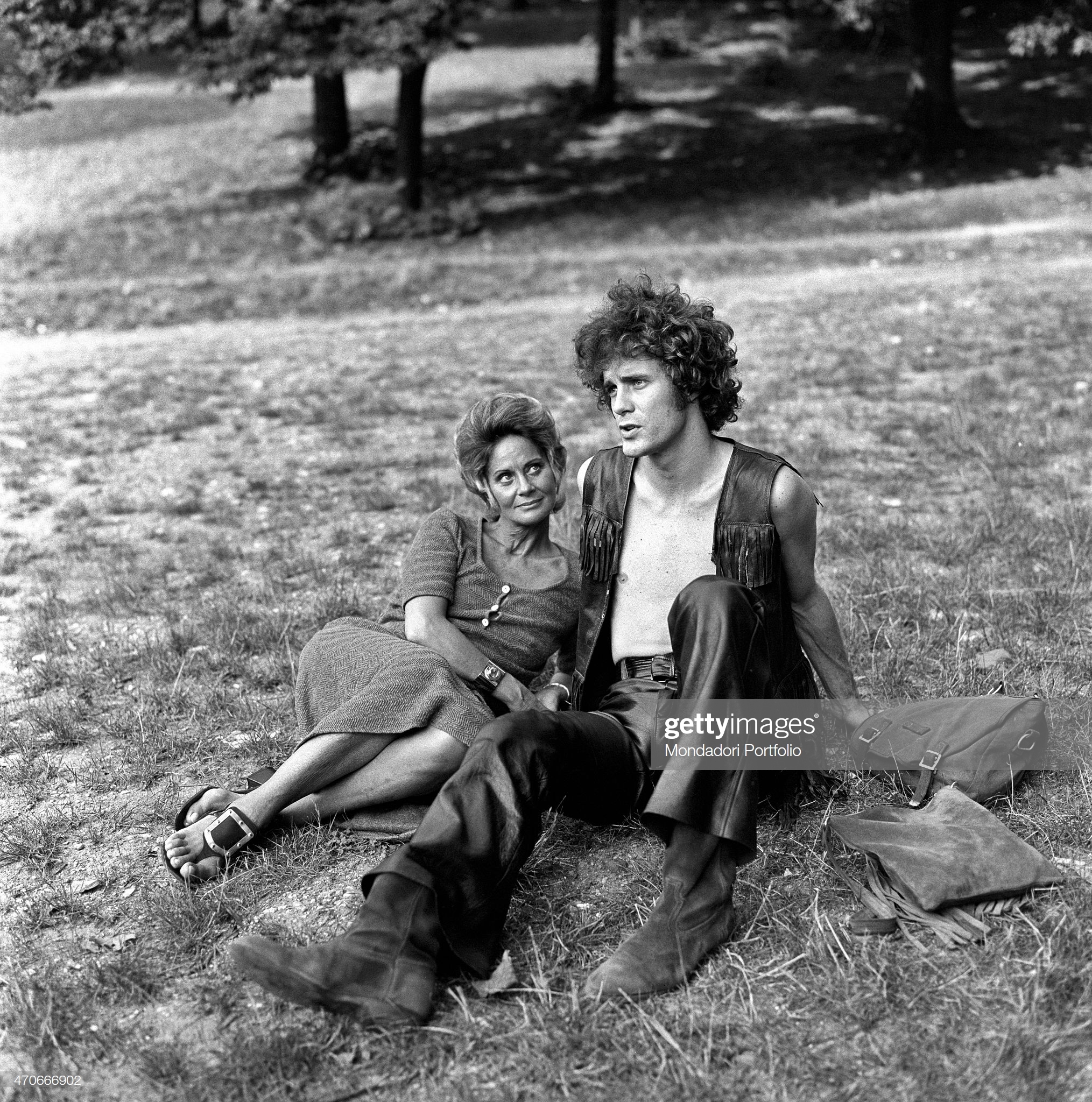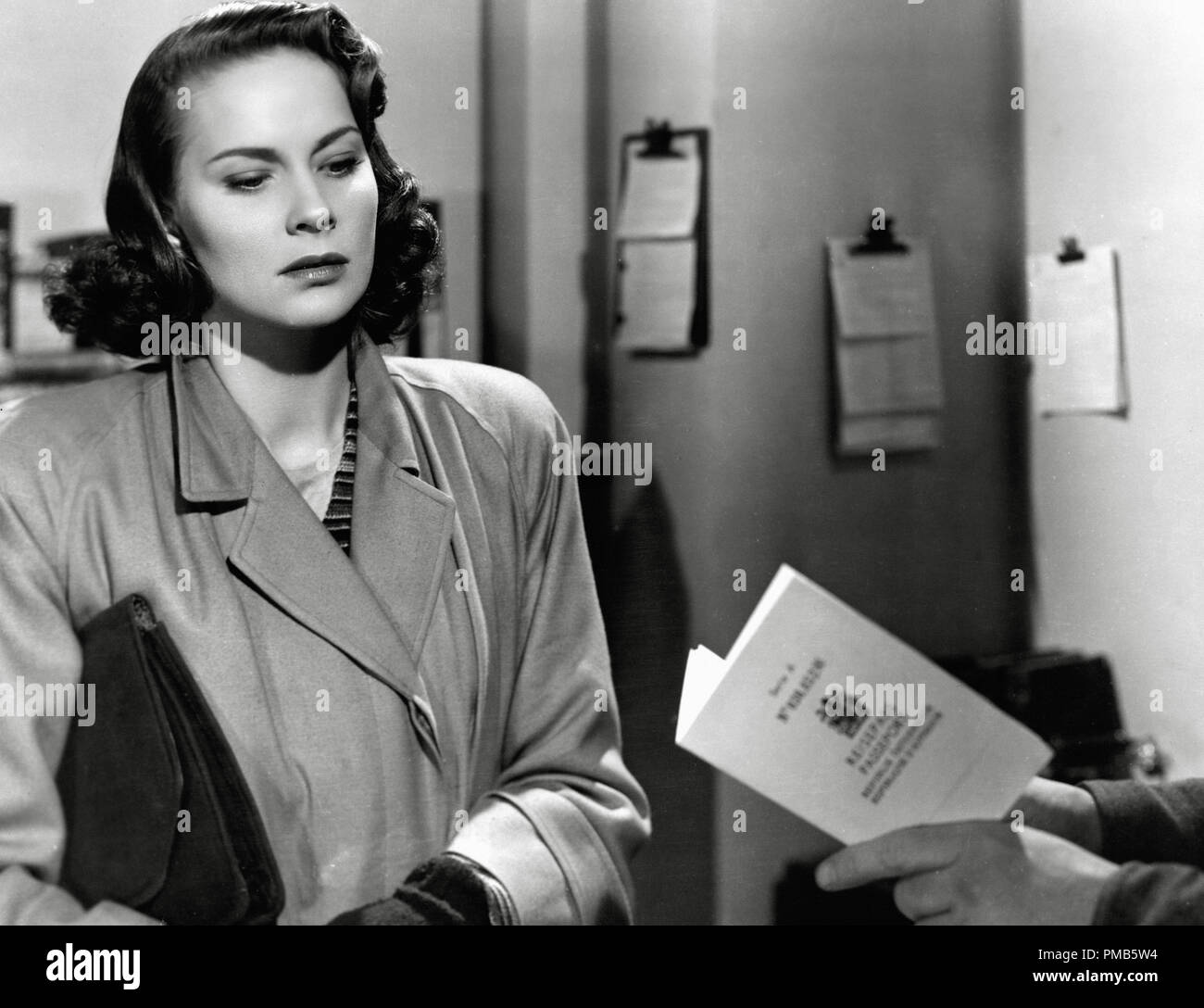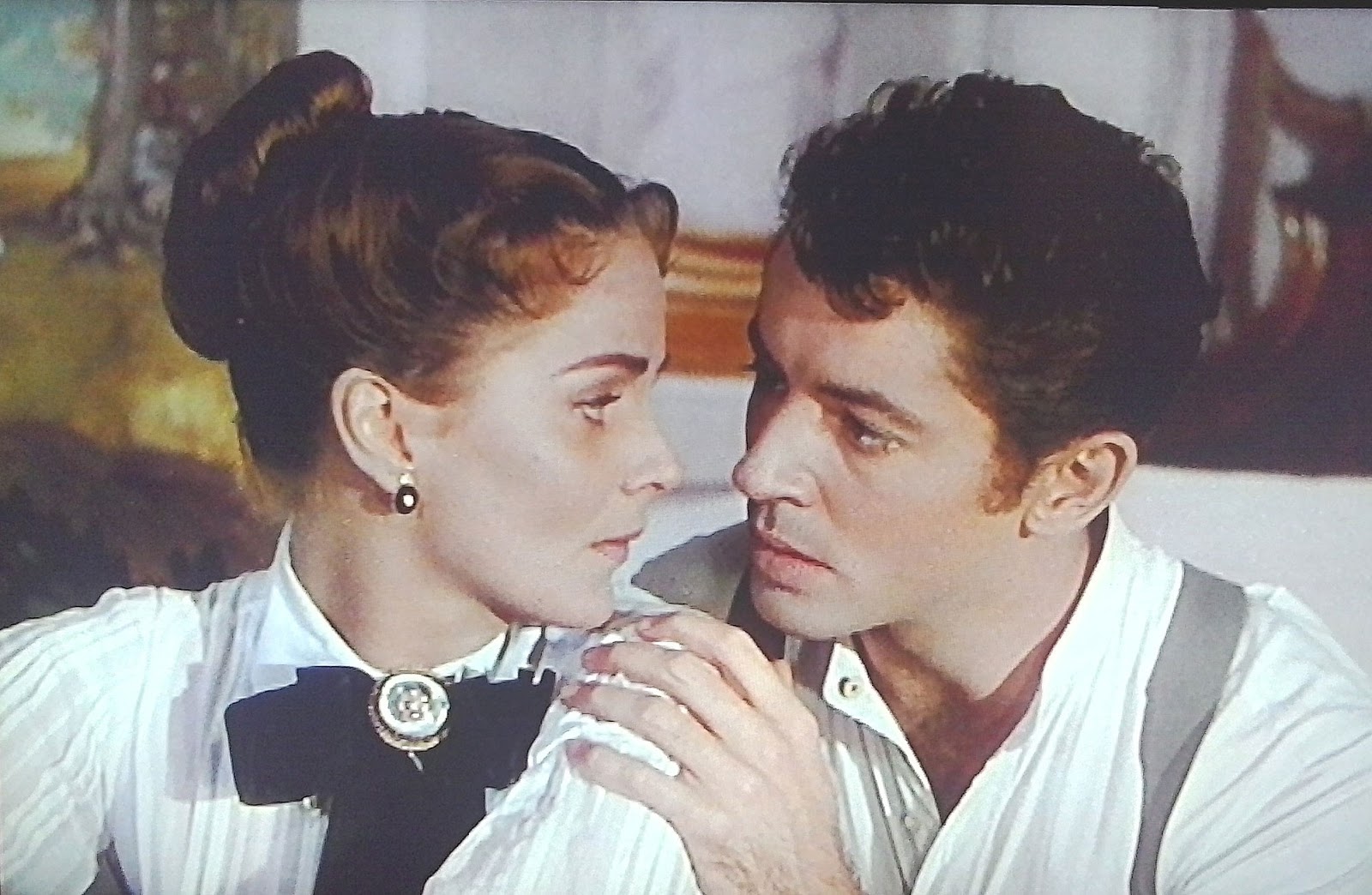Alida Valli - A Star's Enduring Legacy
There are some figures in cinema who truly make a mark, and Alida Valli is certainly one of them. She was an Italian actress who took a leading part in over a hundred screen stories, a stretch of time that goes from the 1930s all the way into the 2000s, which is quite a long run, you know. She had the chance to work alongside many highly thought-of directors and performers, and she was even called one of the most beautiful women on the planet by Benito Mussolini himself.
Her ability to play different kinds of characters was quite special, too. Alida Valli, as a performer from Italy, appeared in motion pictures like *The Third Man*, *Senso*, and *Suspiria*, which really shows her wide range. She came into the world in 1921 in a place called Pola, which was then part of Italy but is now in Croatia, and she passed away in 2006 in Rome, Italy. Many people saw her as a true legend of the screen, admired for her refined good looks, her mysterious presence, and a truly impressive working life that spanned, as a matter of fact, many decades of movie making.
It's interesting to think about how she, Alida Valli, became such a significant figure in Italian cinema. She was born a century ago, more or less, in Pola, and quickly rose to prominence, appearing in beloved works that varied greatly, from Luchino Visconti’s grand *Senso* to Dario Argento’s chilling *Suspiria*. Her working life stretched for nearly seven decades, and people who made films from all over the globe often felt pulled to her deep, hard-to-read attractiveness and her striking green eyes, so it was a very unique appeal. She wasn't just adored by one person; many Italian filmmakers of her era were quite fond of her, and people across Italy thought of her as a beloved figure for the country. After the big war, she found widespread recognition in Hollywood, even though she had started as a movie performer at just fifteen years old, having been given the title of a baroness.
Table of Contents
- The Early Life of Alida Valli
- Personal Details of Alida Valli
- What Made Alida Valli a Cinematic Icon?
- How Did Alida Valli's Beauty Influence Her Career?
- Alida Valli's Journey - From Italy to Hollywood and Back
- What Challenges Did Alida Valli Face During Wartime?
- Alida Valli's Versatility - A Look at Her Memorable Roles
- What is the Legacy of Alida Valli Today?
The Early Life of Alida Valli
Alida Valli, whose full birth name was Alida Maria Laura Altenburger von Marckenstein und Frauenberg, came into the world in Pola, Istria, in 1921. At that time, Pola was part of Italy, but it is now known as Pula in Croatia. Her family background was quite mixed, which is sort of interesting to consider. Her father’s side of the family had connections to Austria and Italy. Her grandfather, Luigi Altenburger, was an Austrian Italian from Trento, and her grandmother, Elisa Tomasi, also from Trento, was a niece of Ettore Tolomei, who was a well-known figure. On her mother’s side, Silvia Oberecker, there were German Austrian roots, with her father, Felix Oberecker, coming from Laibach, which we now call Ljubljana. This mix of backgrounds might have given Alida Valli a broad perspective from a young age, you know, influencing her future as an international performer.
She began her acting pursuits at a very young age, becoming a recognized movie performer when she was just fifteen. This early start meant that she grew up in the public eye, with her natural talent and striking appearance quickly catching the attention of those in the film world. Her early years saw her making a name for herself in Italian cinema, building a foundation for what would become a very long and celebrated working life. She was, in a way, destined for the screen, showing a natural grace and presence that set her apart from others. It's quite something to think about someone starting their chosen profession so young and continuing with it for so many decades.
Personal Details of Alida Valli
To give you a clearer picture of Alida Valli, here are some key personal details about her. These facts help to paint a more complete picture of the woman behind the captivating screen presence, you know, providing a bit of insight into her life's timeline and where she came from.
- 25 Money Secrets Donald Trump Pdf
- 130 Pounds In Kg
- Mamie Gumer
- Rolling Stones Band Members
- Sydney Sweeney Tvd
| Full Name | Alida Maria Laura Altenburger von Marckenstein und Frauenberg |
| Date of Birth | May 31, 1921 |
| Place of Birth | Pola, Istria, Italy (now Pula, Croatia) |
| Date of Passing | April 22, 2006 |
| Place of Passing | Rome, Italy |
| Nationality | Italian |
| Years Active | 1930s - 2000s (approximately 68 years) |
| Known For | Versatile acting, sophisticated beauty, enigmatic screen presence |
These pieces of information, when put together, really show the long span of her life and working time, as a matter of fact. From her birth in a place that saw changes in national identity to her passing in the heart of Italy, Alida Valli’s personal story is as interesting as her professional one. Her commitment to her craft for nearly seven decades is a testament to her passion and staying power in a demanding industry, so it's quite impressive.
What Made Alida Valli a Cinematic Icon?
Alida Valli was considered a true legend of the screen for many reasons, which really speaks to her unique qualities. Her sophisticated beauty, often described as refined, played a significant part. It wasn't just about being pretty; it was about how she appeared on camera, how her looks translated to the big screen. There is a certain quality, they say, that separates ordinary good looks from those that truly work in motion pictures, and it's often about knowing how to use one's visual appeal. Alida Valli certainly understood this, making her face a powerful tool in her performances. This, combined with a mysterious quality about her, made her performances quite compelling, you know, leaving audiences wanting to understand more.
Her ability to take on a wide array of parts also set her apart. From young, innocent characters to more complex, seasoned roles, she showed a remarkable flexibility. She could handle both serious dramatic parts and those with a touch of humor, which is a rare skill for any performer. This range meant she wasn't limited to one type of character, allowing her to explore many different kinds of stories and work with a wide variety of film creators. Her long working life, stretching for nearly seven decades, also cemented her status as a figure of great importance. She continued to work through different periods of film history, adapting and remaining relevant, which is pretty amazing.
The fact that she worked with many highly regarded directors and performers also added to her standing. Being chosen by the best in the business shows a certain level of talent and appeal. These collaborations often resulted in memorable screen stories that are still talked about today. Her presence in these important productions helped to build her lasting reputation. She was, in some respects, a muse for many, with her striking looks and deep green eyes often capturing the imaginations of those who sought to tell stories on film. It was, quite simply, a combination of natural gifts and a deep understanding of her craft that made her so special, as a matter of fact.
How Did Alida Valli's Beauty Influence Her Career?
Alida Valli’s striking looks were certainly a significant factor in her career, but it was more than just being physically attractive. People like Benito Mussolini and David O. Selznick, for instance, described her as one of the most beautiful women in the world, even putting her in the same category as Greta Garbo. This kind of public recognition from powerful figures surely opened doors and drew attention to her early on. Her beauty was often described as dark and hard to read, giving her a mysterious quality that was quite appealing to those who made films. This quality allowed her to play characters with a certain depth, rather than just being a pretty face on screen, you know.
However, it wasn't just about her physical appearance; it was about how she carried herself and how her beauty served her acting. The text suggests that the difference between someone who is simply good-looking and someone who finds success in motion pictures is often about knowing how to use one's visual appeal. Alida Valli seemed to possess this understanding, making her face and presence work for the camera in a truly effective way. Her ability to convey emotion and thought through her looks added layers to her performances. This meant her beauty was not just decorative; it was an integral part of her storytelling, which is quite important for a performer. She had a kind of allure that filmmakers kept feeling pulled to throughout her working life.
This enduring appeal meant that even as she grew older and took on different kinds of parts, her distinctive looks remained a part of her appeal. She was not just a young beauty, but a woman whose visual presence matured with her roles, giving her a lasting presence in the minds of audiences and directors alike. Her beauty was, in a way, a consistent element that spanned her entire working life, helping her to maintain a strong connection with the screen and those who watched her. It's a testament to how certain qualities can truly shape a person's path, you know, when it comes to their chosen profession.
Alida Valli's Journey - From Italy to Hollywood and Back
Alida Valli's working life began in Italy, where she quickly became a beloved figure, considered a national sweetheart by her countrymen and women. Many Italian directors of the time were quite fond of her, showing just how popular she was in her home country. Her early screen stories were mostly Italian productions, where she honed her skills and built her reputation. However, the world of cinema was changing, and after the big war, she found herself stepping onto a bigger stage: Hollywood. This was a significant move for any performer, a chance to gain widespread recognition on a global scale. She managed to achieve this, becoming known to audiences far beyond Italy's borders, which is pretty remarkable.
Her time in Hollywood brought her even greater fame, placing her alongside other internationally recognized performers. She was described by David O. Selznick, a very influential figure in American cinema, as one of the most beautiful women in the world, putting her in the same league as Greta Garbo. This kind of praise from such a person really shows the impact she made across the ocean. Her roles in American productions, like *The Paradine Case* and *The Third Man*, helped to cement her status as a performer who could captivate audiences no matter where the film was made. She showed that her talent and appeal were truly universal, as a matter of fact.
Despite her success in Hollywood, Alida Valli eventually returned to working primarily in European cinema, particularly Italian productions. This move back home didn't diminish her standing; rather, it allowed her to continue collaborating with many of the great European filmmakers. Her career continued to thrive, showcasing her dedication to her craft regardless of the country where the film was being made. She appeared in screen stories across multiple languages, demonstrating her adaptability and commitment to her art. This back-and-forth journey, in a way, highlights her resilience and her enduring appeal, showing that her talent was not tied to any single place or style of filmmaking, you know.
What Challenges Did Alida Valli Face During Wartime?
Alida Valli’s life and working time were deeply affected by the turbulent period of World War II, bringing with it some very difficult challenges. During this time, she faced a significant moral choice. She made the decision to refuse to appear in fascist propaganda films, which was a courageous stand to take given the political climate in Italy at that time. This choice had serious personal consequences for her and her family. It was a time when such decisions could carry immense weight and danger, you know, requiring a strong sense of personal conviction.
The severity of the situation is underscored by what happened to her mother. In 1945, her mother was shot, accused of being someone who worked with the opposing side. This tragic event would have been a profoundly painful experience for Alida Valli, showing the brutal realities of the war and the personal toll it took on individuals and families. It’s a stark reminder that even those in the public eye were not shielded from the harsh impacts of conflict. Her refusal to cooperate with the fascist regime, and the subsequent suffering of her family, paints a picture of a woman who held strong to her beliefs, even when it meant great personal risk. This period of her life was, in some respects, a test of her character and resolve, and she came through it with her integrity intact.
These experiences during the war likely shaped her perspective and perhaps even influenced the depth she brought to her later roles. It shows that her life was not just about the glamour of the screen; it was also marked by profound personal struggle and resilience. The challenges she faced during wartime are a significant part of her story, revealing a strength that went beyond her captivating screen presence. It’s a very human element to her remarkable public persona, as a matter of fact, highlighting the difficult circumstances many faced during that period.
Alida Valli's Versatility - A Look at Her Memorable Roles
Alida Valli’s ability to take on many different kinds of parts is a defining characteristic of her long working life. She truly showed a wide range in the screen stories she chose, moving between genres and character types with a certain ease. This is perhaps best seen in some of her most well-known performances. For example, she took a leading part in *The Third Man*, a classic film noir that is still highly regarded today. In this picture, she played a character with a deep sense of mystery and sadness, showing her skill in portraying complex emotions, you know.
Then there’s her work in Luchino Visconti’s *Senso*, an operatic historical drama. Here, she took on a very different kind of role, one that required a grander, more passionate performance. This film, with its sweeping visuals and intense emotions, allowed Alida Valli to show her capacity for powerful, dramatic acting. The contrast between her role in *The Third Man* and *Senso* really highlights her flexibility as a performer. She wasn't just good in one type of story; she could adapt her style to fit the demands of vastly different creative visions, which is quite impressive.
Later in her working life, she also appeared in Dario Argento’s supernatural slasher film *Suspiria*. This was yet another departure, placing her in a horror setting that was very different from her earlier dramatic roles. Her presence in such a distinct genre shows her willingness to explore new artistic territories and her enduring relevance across many decades of cinema. She could transition from innocent young women to more seasoned, sometimes even sinister, figures with a natural feel. This capacity for change, for stepping into varied shoes, made her a performer of great depth and lasting interest. It means she left behind a body of work that is rich and varied, offering something for many different tastes, as a matter of fact.
What is the Legacy of Alida Valli Today?
Alida Valli’s impact on cinema continues to be felt and recognized even now. Her long and varied working life, stretching from the 1930s into the 2000s, means she was a constant presence in motion pictures for generations. She is remembered not just for her striking looks, which were praised by many powerful figures, but for her talent in bringing a wide array of characters to life. Her ability to work in multiple languages and across different theatrical and television settings also speaks to her versatility and dedication to her craft, you know, showing a truly global reach.
Her contribution to Italian cinema is particularly strong, where she was considered a national sweetheart and admired by many directors of her time. She helped to define an era of Italian film, leaving behind a collection of beloved screen stories that are still watched and studied. The fact that a documentary film was released on the occasion of her centenary anniversary, created by Mimmo Verdesca and Marco Tullio Giordana, really shows that her importance has not faded. It means people are still interested in her life and her work, wanting to learn more about this significant figure.
Her filmography, which includes over a hundred titles, is a rich resource for anyone interested in the history of cinema. From her early uninspired works to her critically acclaimed performances in films like *The Third Man* and *Senso*, her career provides a fascinating look at the evolution of film itself. She stands as a symbol

Alida Valli's feet

Alida valli hi-res stock photography and images - Alamy

Alida Valli - actress | Italy On This Day